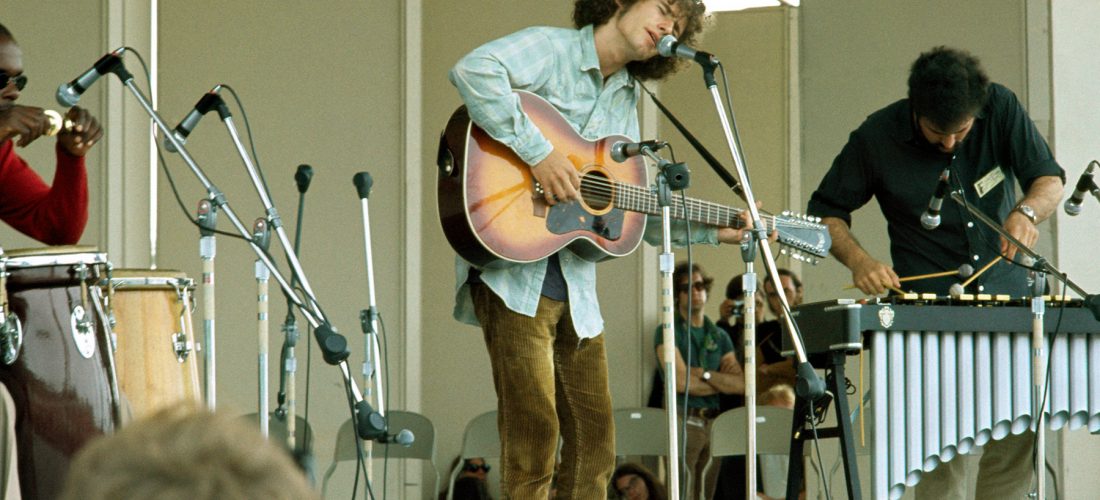Tim Buckley Lets His Freak Flag Fly on Live LP ‘Merry-Go-Round at the Carousel’
Way back when, Dylan and the Beatles demonstrated how musicians could evolve dramatically, overhauling their sound on record once or even twice a year. They were hardly alone, but few others shape-shifted during than era like Tim Buckley. By 1968, the L.A.-via-Orange-Country troubadour was moving beyond the keening-balladeer mode of his early work — a mere two years before — and gravitating toward jazz and improvisational music. That exhilarating shift, a key period in his career, is documented in this newly unearthed live tape, recorded that year at the Carousel Ballroom in San Francisco by the late sonic wizard (and acid impresario) Owsley “Bear” Stanley.
The sense that Buckley was already outgrowing any sort of new-Dylan expectations on him arrives pretty much right away. The album opens with “Buzzin’ Fly,” that musical snuggle blanket that captures the rush of new love, the joy of discovery. Other than stretching out a few words to extra syllables, Buckley sings it much as he would on Happy Sad, which wouldn’t be out for almost another year.
But by the second song, “I Don’t Need It to Rain,” he’s starting to leave conventions behind – and not just in its lyrics, the oblique and borderline kinky tale of an “undercover tinsel queen.” His musicians – bassist John Miller, vibes player David Friedman and percussionist Carter “C.C.” Collins – lock into a folky-improv groove behind him, and Buckley starts flying. Over the course of nine minutes, his voice is howling, moaning, swallowing syllables, and emitting muted yodels, and he’s slamming chords on his 12-string.
The most hypnotic parts of Merry-Go-Round at the Carousel pick up where that command performance leaves off. Buckley drops his voice up and down several octaves on a version of the folk standard “Green Rocky Road,” and he becomes a fervent folk preacher on the newly discovered “Blues, Love.” It’s telling that he dispatches accessible songs like “Happy Time” and “Sing a Song for You” in a few minutes’ time, but then dives headfirst into “Merry-Go-Round” by his hero, Fred Neil. There, Buckley begins with Neil’s words, sung in the voice of a black child in the South — wandering a circus and looking for his own playground there – before shifting to a few verses of Lead Belly’s “In the Pines.” Buckley then pivots to his own ad-libbed lines about women and race, finally wrapping up the song (with some of his own, Miles Davis-inspired “Strange Feelin’”) 11 minutes later. Here and elsewhere, Miller’s upright bass serves as both Buckley’s musical backbone and its partner in improv. As with Phil Lesh in the Grateful Dead, Miller is as much lead guitarist as bass player, and he and Friedman lend a smokey-jazz-club feel to the songs.
Buckley’s devotion to pushing his voice and his art would soon lead to albums like Starsailor, a collection of musical zigzags that, over 50 years later, remains one of the most daunting albums ever made. That journey starts on recordings like these. For any other “folksinger” – a term barely suitable for describing Buckley – it would be anathema to stop a song midway through so that your conga player could take a long, unaccompanied solo. For Buckley, it was just another day at the ballroom.
